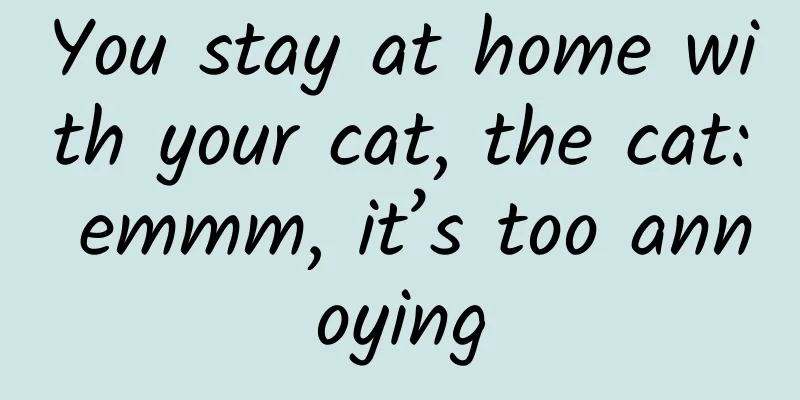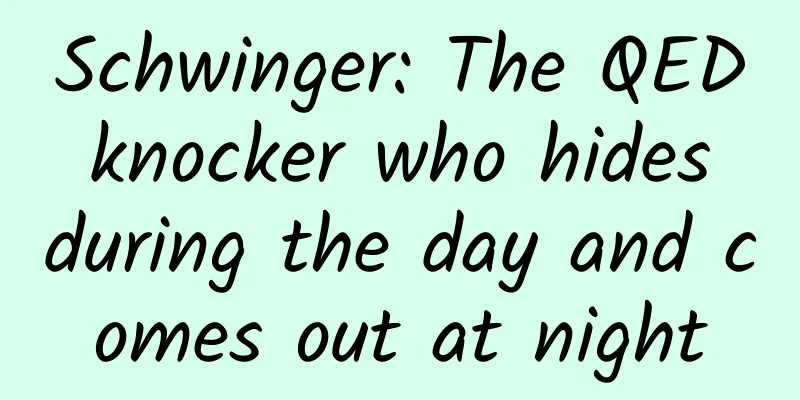You stay at home with your cat, the cat: emmm, it’s too annoying

|
Cat lovers are often associated with sensitive, quiet, and solitary traits. Cat ownership and anxiety also seem to be easily linked. A study comparing dog and cat owners found that dog owners are more extroverted but more conservative in their sense of adventure, whereas cat owners are more creative and adventurous, but also more anxious. Anxiety makes people feel uncomfortable, but cats at home may get more attention because of people's anxiety. Studies have found that the more anxious people are, the more they trust and like their cats . Are you a cat owner who is prone to anxiety? | pixabay The more anxious you are, the more you like cats " Cat lovers are not crazy, they are just anxious ," said Mikel Delgado, an animal behaviorist who specializes in cat behavior and the human-cat relationship. Over the years, Delgado has been studying how to help people get along better with their pets. One of her studies found that how people build relationships with their pets is actually affected by their own personality. For example, anxiety and depression can affect their relationship with cats. Depression can have a negative impact , as depressed people tend to feel that they don't deserve the love of cats. Anxiety, on the other hand, can make the relationship between you and your cat warmer . This may be because in the relationship between pets and humans, pets rely on human care throughout their lives, and people with anxiety may be more concerned about changes in pets' behavior. Human anxiety can be transmitted to cats When faced with an anxious poop-scooper, a cat may also feel that being this person's cat is not easy. Studies have found that human anxiety can also affect the health of pets. Animal welfare expert Lauren Finka has also been studying cats over the years. In 2016, her research team surveyed more than 3,000 cat owners in the UK and found that anxious cat owners are more likely to be overprotective and overly worried when taking care of their cats . In the UK, walking cats is a common thing. But more nervous cat owners will prioritize the various dangers of outdoor activities, thereby limiting the cat's contact with the outside world. More anxious owners also have cats with more health problems. This may be because they have a more pessimistic view of their cats' health, which may lead to more frequent but unnecessary visits to the vet or unnecessary diets . Similar situations also occur in the parent-child relationship and the relationship between people and dogs. "It's important that we be aware of how our actions may affect our pets, both for good and for bad," Finka stressed. Pets can also be anxious No need to go to work, no worries about food and drink, just lying down and sleeping at home every day... In the eyes of many people, cats’ lives are very comfortable. However, cats don’t show their emotions on their faces, and it’s hard to tell from their facial expressions whether they’re in pain or discomfort. The same is true when they’re stressed. “ Cats can be silent sufferers, hiding their mental stress until something explodes that’s obvious to humans ,” Delgado said. "Cats hide their stress. Until something obvious breaks out" | pixabay Common Symptoms of Pet Anxiety Excessive meowing, increased movement, hiding, excessive licking, rapid heartbeat and breathing, body tremors ... these reactions may all be reactions to a cat's anxiety. Young or middle-aged cats often suddenly develop spontaneous cystitis (FIC) when they are under mental stress. Common symptoms include difficulty urinating, frequent toileting, urinating in places other than the litter box, frequent licking of the genitals, hematuria, and inability to urinate ... It should be noted that male cats have narrower and longer urethras and are more prone to urethral obstruction than female cats, which may cause acute uremia and lead to death. Therefore, if a cat cannot urinate, it is a very dangerous emergency and needs to be taken to the hospital immediately . Male cats have narrower and longer urethras, so they need to be more careful when they find urination problems. | LifeLearn Inc. Although the symptoms are very similar to those of a urinary tract infection, the cause of spontaneous cystitis is unclear. Currently, it can only be classified as spontaneous cystitis after a series of tests have been conducted and common or known causes have been ruled out. Fortunately, for most cats who do not discover urethral obstruction, these symptoms will resolve on their own and return to normal in about a week. The owner needs to feed more wet food and find ways to increase the cat's water intake , which will help dilute the urine, reduce irritation to the bladder wall, and relieve the cat's discomfort. However, nearly half of cats will relapse within a year. The key to preventing and avoiding relapse is to identify possible irritants and reduce the cat's tension and anxiety as much as possible . For multi-cat households, specific pheromones can be used to relieve the tense atmosphere at home. Causes of Anxiety in Pets There are many reasons why cats may become anxious. Illness, infection, pain, past trauma, changes in the household environment, a new cat in the home, or even just being separated from people can all cause cats to become anxious. In recent years, separation anxiety in pets has received more and more attention and discussion. It is estimated that among cats’ anxiety, separation anxiety accounts for 10-20%. This number is higher for dogs, and the proportion of dogs experiencing separation anxiety has increased significantly while their owners are staying at home during the epidemic. A survey shows that 61% of owners found that during the epidemic, their dogs would show anxiety symptoms when they saw people going out. How to deal with your pet's anxiety If your pet licks itself excessively, chews its nails excessively, or exhibits other behaviors that could injure itself, you should seek medical attention as soon as possible. If anxiety is diagnosed, your doctor can prescribe anti-anxiety medication for your pet. In addition to going to the hospital for professional treatment, pet owners should also pay attention to creating a comfortable and quiet living environment for their pets . Cats are very sensitive to smells . Therefore, you should avoid cleaning all the cat litter boxes at once and avoid using detergents with strong odors. Most cats prefer open litter boxes and odorless sandy litter, so you should arrange the number and placement of litter boxes reasonably and clean urine and feces frequently. If you are not sure about your cat's preferences, you can try to provide multiple options and observe the cat's choice. In addition, cats are also very sensitive to sounds , and their hearing range is three times that of humans. Therefore, cat owners should not take the auditory environment at home lightly. When pets have anxiety attacks, the home should be kept as quiet as possible. " Playing is an important way to release stress ," said animal behaviorist Delgado. "It is as important as food and water." Cats need about 40 minutes of play a day, and it should be divided into several times, such as four times, each lasting about 10 minutes. But it should also be noted that every cat is different and has different exercise needs. While the cat is playing, the owner should also pay attention to possible dangers, such as feathers dropped from cat teasers and various strings in the home . These things may damage the mouth and digestive tract if ingested by the cat, and the strings may also cause entanglement and trip over furniture and other objects when the cat tries to break free. For some cats, running water can also be a toy that makes them curious. However, the power cord of the water dispenser should also be paid attention to. Cats' love of drinking water can also prevent or relieve spontaneous cystitis, and the anxiety of the cat owner himself may also be reduced. During the pandemic, many people around the world have been forced to stay at home. In May 2020, during the lockdown, an Australian study surveyed nearly 400 people living alone, of whom about one-third owned dogs and one-third owned cats. The survey found that during the period when humans were staying at home, the behavior of pets also changed. Although some people said their dogs became more clingy, in general, dogs became happier and more relaxed because of more company . Cats showed more changes than dogs when facing their owners at home - in addition to being happier and clingier, they were also more active and liked people more. Of course, some cats felt more unhappy because they were disturbed by people. In the study, almost all dog owners said that their dogs like people to stay at home all the time. However, the atmosphere in cat-owning families is different. About half of the cat owners said that their cats always feel that they are disturbed . Researchers say that people always being at home may give cats a feeling that their space is being invaded. In addition, cat owners seem to have a harder time staying focused , which may be because cat owners need to pay more attention to their cats' behavior when they are at home compared to dog owners, and cats' behavior is generally more unpredictable than dogs. However, whether they have a dog or a cat, everyone said that because they have a pet, they have a reason to talk loudly when they are alone at home . In the past two years, relevant studies have shown that factors such as fear of infection, isolation, social distancing, sudden unemployment, uncertainty, and loneliness have significantly increased people's anxiety. During this period, pets have provided great psychological support to many people, which has slightly alleviated the negative impact of the epidemic on people's mental health . As companion animals, the obvious function of cats and dogs is companionship. While loneliness is alleviated, people also have to get up, move around a little, and interact with their pets because they need to take care of them and play with them. Such small goals and sense of responsibility are actually crucial to people's mental health. Time passes faster. Fortunately, some moments are frozen Before we knew it, 2022 is coming to an end. The epidemic has brought many changes, one of which seems to have changed people's perception of time. A survey found that during the lockdown in the UK, 80% of people said that their perception of time had changed . Every day at home is almost the same, and people have significantly reduced new experiences such as going to restaurants and traveling. So, looking at the present, you will feel that time is passing so slowly, but looking back at a longer period of time, you will find that weeks and months have passed just like that. Companionship is mutual. Pets relieve people's mental stress and loneliness, and for pets, you are not just a shit shoveler who provides food and care, but also a family member that it relies on and trusts, and can help relieve boredom and anxiety. References [1] Reevy, GM, & Delgado, MM (2015). Are Emotionally Attached Companion Animal Caregivers Conscientious and Neurotic? Factors That Affect the Human–Companion Animal Relationship. J. Appl. Anim. Welfare Sci., 18(3), 239–258. doi: 10.1080/10888705.2014.988333 [2] Reevy, GM, & Delgado, MM (2020). The relationship between neuroticism facets, conscientiousness, and human attachment to pet cats. Anthrozoös, 33(3), 387-400. [3] Feeling Anxious? Why a Cat May Be Your Purr-fect Companion. (2020, June 11). Retrieved from https://www.ucdavis.edu/news/feeling-anxious-why-cat-may-be-your-purr-fect-companion [4] Diversity Group Adelaide. (2022, November 24). Stress Cystitis in Cats | Dandenong Ranges Veterinary Centre. Retrieved from https://drvet.com.au/articles/2020/03/25/stress-cystitis-in-cats Pet Parenting: Being Neurotic is a Good Thing. (2022, November 30). Retrieved from https://www.thewildest.com/cat-lifestyle/neurotic-pet-parents [5] Dodgson, L. (2019). Your anxiety could be making your cat stressed. Insider. Retrieved from https://www.insider.com/your-anxiety-could-make-your-cat-stressed-2019-2 [6] Reducing stress for cats. (2022, November 30). Retrieved from https://www.humanesociety.org/news/keeping-cats-stress-free PetMD Editorial. (2022). How Long Should You Play With Your Cats Each Day? PetMD. Retrieved from https://www.petmd.com/cat/care/how-long-should-you-play-your-cats-each-day [7] Oliva, JL, & Johnston, KL (2020). Puppy love in the time of Corona: Dog ownership protects against loneliness for those living alone during the COVID-19 lockdown. Int. J. Soc. Psychiatry, 67(3), 232–242. doi: 10.1177/0020764020944195 [8] Dodgson, L. (2019). Your anxiety could be making your cat stressed. Insider. Retrieved from https://www.insider.com/your-anxiety-could-make-your-cat-stressed-2019-2 [9] Finka, LR, Ward, J., Farnworth, MJ, & Mills, DS (2019). Owner personality and the wellbeing of their cats share parallels with the parent-child relationship. PLoS One, 14(2), e0211862. doi: 10.1371/journal.pone.0211862 [10] Feline Idiopathic Cystitis | VCA Animal Hospital. (2022, November 30). Retrieved from https://vcahospitals.com/know-your-pet/feline-idiopathic-cystitis [11] Pandora Syndrome in Cats: The Role of Stress in Urinary Tract Problems - Petful. (2022, December 02). Retrieved from https://www.petful.com/pet-health/pandora-syndrome-in-cats [12] Xiong, J., Lipsitz, O., Nasri, F., Lui, LMW, Gill, H., Phan, L., ...McIntyre, RS (2020). Impact of COVID-19 pandemic on mental health in the general population: A systematic review. J. Affect. Disord., 277, 55–64. doi: 10.1016/j.jad.2020.08.001 [13] Pets Play Crucial Role in Fighting Loneliness During COVID-19, Research Shows. (2022, December 02). Retrieved from https://www.verywellmind.com/pets-play-crucial-role-in-fighting-loneliness-during-covid-19-5081473 [14] Bolstad, CJ, Porter, B., Brown, CJ, Kennedy, RE, & Nadorff, MR (2021). The relation between pet ownership, anxiety, and depressive symptoms in late life: Propensity score matched analyses. Anthrozoös, 34(5), 671-684. [15] Krista A. Sirois, D. (. BR (2022). The Ultimate Guide to Cat Anxiety. PetMD. Retrieved from https://www.petmd.com/cat/conditions/behavioral/c_ct_fear_phobia_anxiety [16] Amiot, CE, Gagné, C., & Bastian, B. (2022). Pet ownership and psychological well-being during the COVID-19 pandemic. Scientific reports, 12(1), 1-14. [17] Perception of Time Has Shifted During COVID-19, New Survey Reports. (2022, December 02). Retrieved from https://www.verywellmind.com/why-time-is-passing-so-strangely-during-covid-5075438 This article comes from the Species Calendar, welcome to forward If you need to reprint, please contact [email protected] |
>>: How harmful are secondhand smoke and thirdhand smoke?
Recommend
The barriers of the old order are becoming reefs for Chinese smartphone manufacturers to expand overseas
[[124761]] Within a week, Xiaomi and OnePlus, two...
(Big Soldier Data Flow Operation) Dou+ Doujia Practical Tutorial
(Big Soldier Data Flow Operation) Dou+ Doujia Pra...
Stress leads to obesity! How to break out of the vicious cycle of "stress → eating → stress"?
Audit expert: Wu Xi Deputy Chief Physician, Depar...
Wu Hanqing’s personal profile: How to discover high-quality external link resources?
Baidu is now paying more and more attention to th...
Brand personalization implementation methodology: 9 steps, let’s talk about how to implement personalization specifically?
This article is a continuation of the previous ar...
The most comprehensive information flow advertising channels and techniques in 2019!
Recently, we have summarized the characteristics ...
What? Pineapple soaked in salt water has no effect? It turns out that I have been doing it wrong all these years
Reviewers of this article: Zhang Zheng, PhD in Nu...
"Douyin Data Operation Series" Douyin Live Streaming Room Detonation Algorithm
Training course content: The course starts with w...
Did the jujube tree at the netizen's grandmother's house suddenly go "crazy"? Is it contagious? The truth is actually like this!
Recently, many people have seen a video: a netize...
30-Day Book-to-Monetization Bootcamp: Empower yourself with reading, and teach you step by step how to turn the books you read into money
30-Day Book-Monetization Boot Camp: Empower yours...
How to make profit after developing WeChat Mini Program? How does WeChat Mini Program make profit?
How to make profit after developing WeChat Mini P...
Peking University Feng Ke: Learn supply chain finance and Internet finance from scratch [Insights]
Peking University Feng Ke: Learn Supply Chain Fin...
Invite celebrity KOLs, what is Xiaohongshu’s operation strategy?
I heard that after the Empress in "Story of ...
Google's powerful Android UI toolkit dominates Github, here's a guide to getting started
In 2019, Google publicly released a non-bundled t...
KFC vs. McDonald's, Home Inn vs. Hanting, how do these mortal enemies fight each other in close combat in the city?
In this world, there are some brand names that, a...
![Ace's 7th Universal Avatar Course 2021 [HD quality with brush courseware]](/upload/images/67cc2bb528c34.webp)








